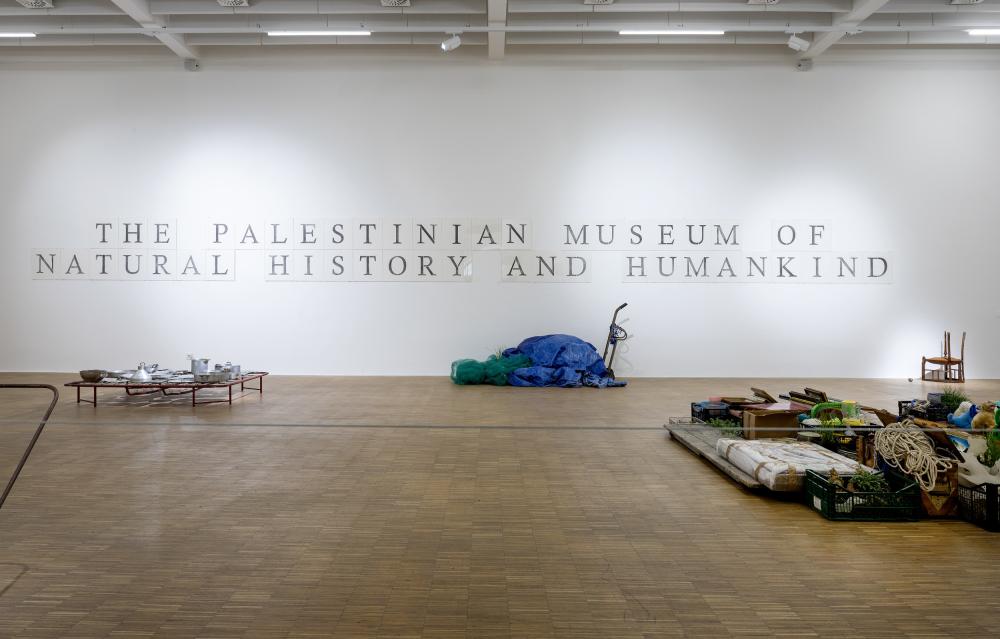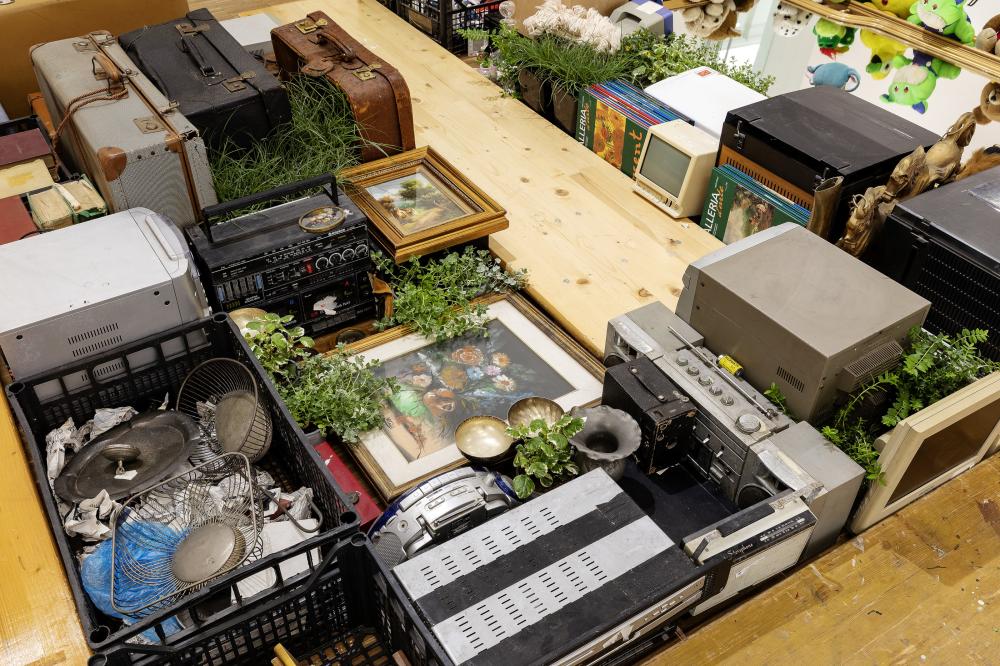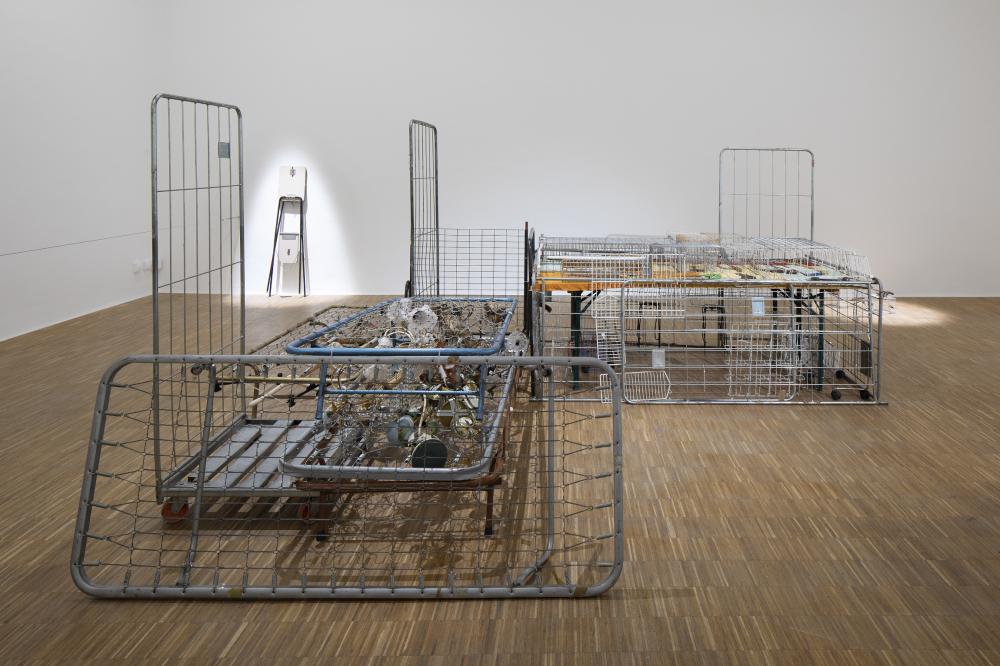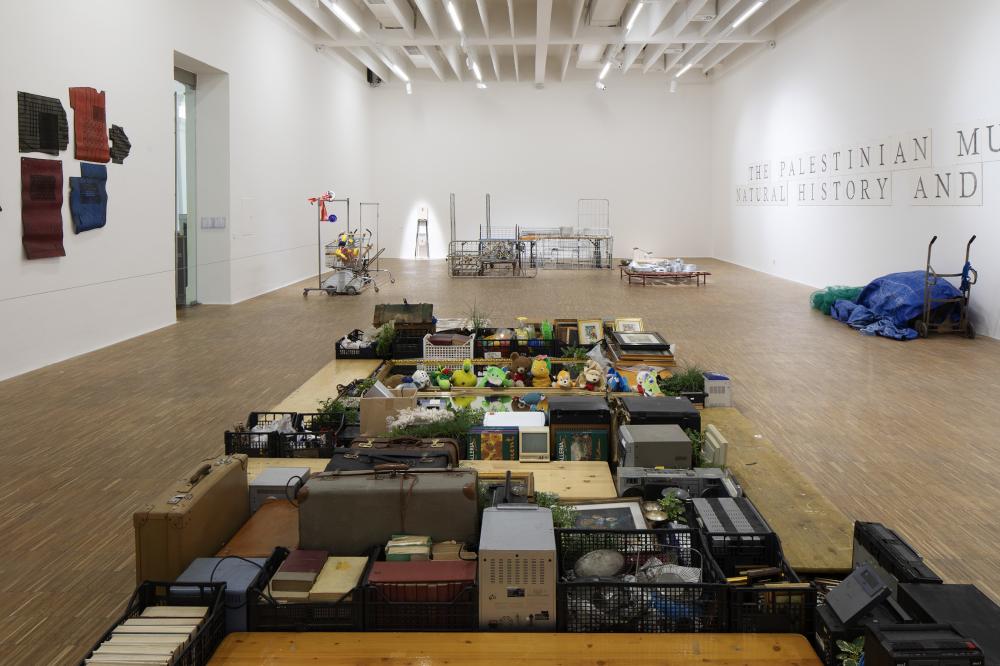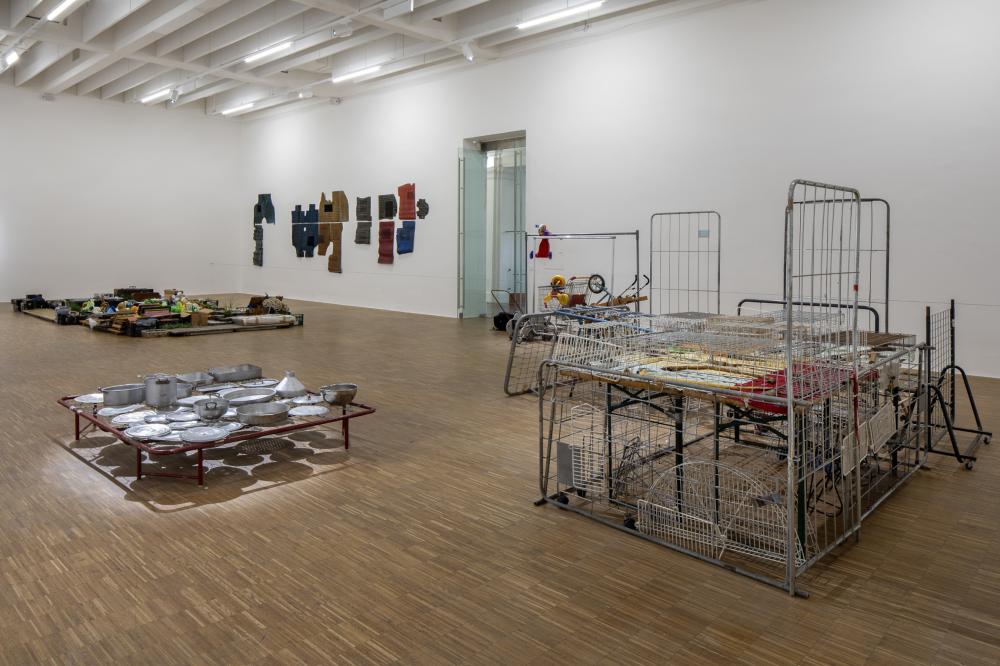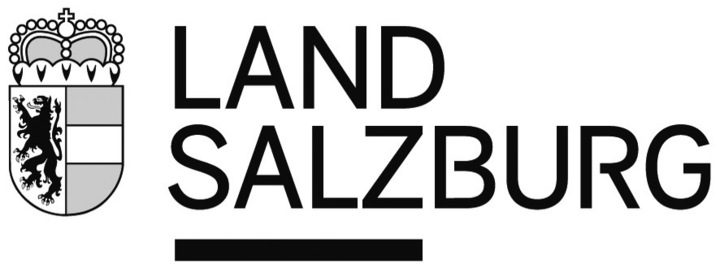


Khalil Rabah presents a major new installation in the Great Hall, along with a presentation of the video “My Body and Sole” in the Kabinett. The artist employs multiple forms of performative action in order to interrogate histories of erasure; displacement and marginalisation. A version of his mutable project The Palestinian Museum of Natural History and Humankind is presented in the Great Hall. This landmark project fosters wonder, knowledge and ultimately, a sense of restitution for and of Palestine. Rabah’s practice seeks to challenge the more dominant narratives of our time, particularly western concepts of museology and ethnography, exploring different poetics of human relationships within these spheres.
Acting here simultaneously in the role of artist, curator and director of this nomadic and evolving project, Khalil Rabah’s work may especially strike a chord with those whose lives have been on the move and between different countries and homelands. In addition to referencing exile and flight, this work challenges the idea and functions of a museum and thus acts out a kind of museological investigation through the lens of the diaspora. The author and curator Dr. Omar Kholeif elaborates powerfully on these notions. Here are excerpts from the exhibition text:
Rabah’s ongoing work, The Palestinian Museum of Natural History and Humankind (2003-ongoing) is the closest project to a Gesamtkunstwerk for the artist. Unspooled from abandoned shops, homes, and industrial spaces, various collected objects find themselves in a constantly changing choreography each time they are put on show. Visitors have the possibility to intimately intertwine with what they see, each entity speaking in a different language. Museological strategies of display, from vitrines and storage hanging systems, become filled-in like the pages of a colouring book, with new findings at each juncture in Rabah’s journey.
The inherently unreasonable task of encyclopaedic museums that proclaim to speak to a universal history; the failure of such an act is one of the exhibition’s permeable disclosures. Undergirding this is the inevitable and poignant impossibility of archiving a people, a place, a state, which remains under occupation. Rabah’s is a museum of restitution in fragments—distributed piecemeal through institutional and financial frameworks. Rabah’s project sets up stages and scenography for one to bear witness to the erasure of histories.
What delineates Khalil Rabah’s approach is his specific ontological perspective gleaned through a biographical life of constant packing and unpacking. Engaging multiple identities, one could situate his gaze through numerous guises: Palestinian and/or Arab? Queer and/or Christian? A citizen of the U.S. and/or of a non-place? Or perhaps the most commonly misunderstood binary of artist, architect, or organiser? Khalil Rabah’s work also speaks to and from multiple theoretical positions and perspectives. One of these is the framework of metamodernism, also referred to as, post post-modernism; a situation of existing between modernism and post-modernism; acknowledging the failed project of ‘universal’ modernism, while still maintaining one’s self-reflexivity. The project considers a structure of feeling; of scattered history; an invitation to constantly oscillate—back and forth into eternity.
The complete text is available here: https://www.salzburger-kunstverein.at/digitorial2
Khalil Rabah is a Palestinian conceptual artist born in Jerusalem, Palestine, in 1961 to a family from Ramallah. He studied Architecture and Fine Arts at the University of Texas at Arlington and resided in the United States for more than a decade. Upon his return, he taught at the Department of Architecture at the Birzeit University and at the Department of Fine Arts at Bezalel Academy from 1997 to 2000. Rabah co-founded the Ramallah-based Riwaq Organization, which seeks to highlight and preserve Palestinian cultural heritage, in 1991, and the Jerusalem-based Al Ma’mal arts foundation in 1998. He is also a founding contributor to Art School Palestine in London, and served on the curricular committee of Ashkal Alwan’s Home Workspace Program from 2011 to 2015. He currently lives and works in Ramallah.





